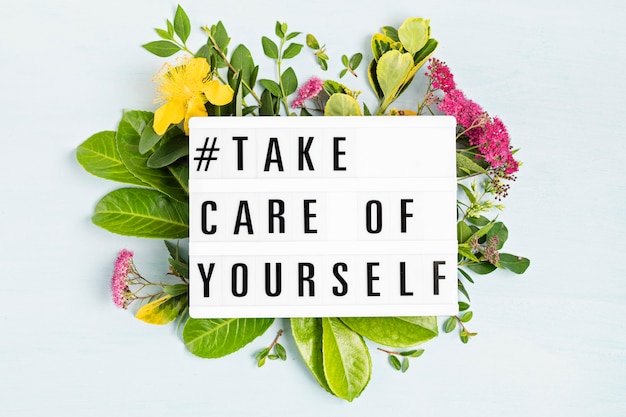In the journey towards mental health awareness, inspirational quotes play a powerful role in spreading messages of hope, encouragement, and understanding. They serve as reminders that individuals are not alone in their struggles and that seeking help is a sign of strength. In this section, we will explore empowering quotes and inspirational words that resonate with the importance of mental health.
Empowering Quotes on Mental Health
- “Talking about mental health openly is an opportunity for others to get help and support and for us to assist others.” – Steven Aitchison (Adobe)
This quote by Steven Aitchison emphasizes the significance of open conversations surrounding mental health. It highlights the importance of reaching out for help, supporting others, and breaking the silence that often surrounds mental health challenges.
- “Women have to take the time to focus on our mental health—take time for self, for the spiritual, without feeling guilty or selfish.” – Beyoncé (Adobe)
Beyoncé’s quote emphasizes the importance of self-care and prioritizing mental health. It encourages women to take breaks, care for themselves, and promote their overall well-being. This reminder is crucial in a society that often expects women to prioritize the needs of others over their own.
Inspirational Words for Mental Health
- “There isn’t anyone you couldn’t love once you’ve heard their story.” – Fred Rogers (Adobe)
These words from Fred Rogers showcase the power of understanding and empathy. By reminding us to listen to others’ stories, the quote emphasizes that everyone has a unique journey. It encourages compassion and understanding, fostering an environment where mental health can be openly discussed and supported.
- “Vulnerability is not winning or losing; it’s having the courage to show up and be seen when we have no control over the outcome.” – Brené Brown (Adobe)
Brené Brown’s quote highlights the strength found in vulnerability. It encourages individuals to reach out for support and not be afraid to share their struggles. By embracing vulnerability, people can find the courage to seek help and connect with others who may be experiencing similar challenges.
- “We should make it clear that getting help isn’t a sign of weakness—it’s a sign of strength.” – Michelle Obama (Tokyo Mental Health)
Michelle Obama’s quote emphasizes the importance of debunking the misconception that seeking help for mental health concerns is a sign of weakness. Instead, it highlights that reaching out for support takes courage and strength. This quote serves as a reminder that seeking help is an essential step towards healing and growth.
These empowering quotes and inspirational words demonstrate the significance of mental health awareness and the importance of destigmatizing mental health challenges. By sharing these messages, we can inspire others, promote understanding, and create a more compassionate society that supports mental well-being.
Importance of Mental Health Advocacy
Advocacy plays a crucial role in promoting mental health awareness and breaking the stigma surrounding mental health. By raising awareness and encouraging open conversations, society can foster a more supportive and inclusive environment for individuals facing mental health challenges. In this section, we will explore two aspects of mental health advocacy: breaking stigma through quotes and encouraging help-seeking behaviors.
Breaking Stigma through Quotes
Quotes have the power to convey powerful messages and create a sense of unity. Various influential figures have shared their thoughts on mental health, contributing to the ongoing efforts to break down the stigma associated with it. These quotes provide reassurance, empathy, and encouragement for individuals who may be struggling. For instance:
- Michelle Obama, former First Lady, emphasizes that seeking help for mental health is a sign of strength, not weakness.
- Naomi Osaka, professional tennis player, highlights the importance of acknowledging that it’s okay to not be okay and encourages open conversation about mental health.
- Bill Clinton, former U.S. President, reminds us that mental illness is nothing to be ashamed of, but the stigma and bias surrounding it affect us all.
- Glenn Close, acclaimed actress, advocates for more open and unashamed conversations about mental health, emphasizing the need for sunlight and candor in addressing the topic.
These quotes, among many others, serve as a reminder that mental health challenges are a common part of the human experience. By sharing these powerful words, individuals can find solace, support, and a sense of belonging.
Encouraging Help-Seeking Behaviors
Another important aspect of mental health advocacy is encouraging individuals to seek help when they need it. Many people hesitate to reach out due to fear, shame, or a lack of awareness about available resources. Advocacy efforts aim to change this by promoting help-seeking behaviors and creating a culture that values mental well-being.
One way to encourage help-seeking is by providing information about available mental health services and resources. By raising awareness of helplines, counseling centers, and support groups, individuals are more likely to seek the assistance they need. Incorporating these details within mental health advocacy campaigns can help make these resources more accessible and known to those who may be struggling.
Additionally, sharing personal stories of individuals who have sought help and found support can inspire others to take the first step. These stories demonstrate that seeking help is not a sign of weakness but rather a courageous act of self-care and self-improvement.
By breaking down the barriers associated with mental health, society can create a supportive environment that encourages individuals to seek help, fostering better mental health outcomes for all. Together, we can build a society that recognizes the importance of mental well-being and supports individuals on their journey towards recovery and resilience.
Celebrity Perspectives on Mental Health
Celebrities have a significant impact on raising mental health awareness due to their influential platforms and the ability to reach a wide audience. They play a crucial role in destigmatizing mental health issues and encouraging open conversations. In this section, we will explore how celebrities’ perspectives contribute to mental health awareness through their impact and personal experiences.
Celebrities’ Impact on Mental Health Awareness
Celebrities such as Demi Lovato, Princess Diana, Adele, Lady Gaga, and Martin Luther King Jr. have used their platforms to advocate for mental health awareness and break down the barriers surrounding it.
Demi Lovato, a well-known singer and actress, emphasizes the importance of recognizing that mental illness affects people from all walks of life, irrespective of age, race, gender, religion, or economic status. She urges society to take mental health seriously and not discriminate against it based on political affiliations.
Princess Diana, the late Princess of Wales, openly discussed her experience with depression, highlighting the changes she made in her life and the need for rest and self-care when facing mental health challenges. Her candor and vulnerability in sharing her struggles have helped to humanize mental health issues and encourage others to seek support.
Adele, a renowned singer-songwriter, emphasizes the importance of self-acceptance and happiness as the foundation for any self-improvement journey. She advocates for appreciating oneself before striving for change, promoting a positive and compassionate approach to mental well-being.
Lady Gaga, a multi-talented artist, shares her personal experiences with pain and anxiety, highlighting how music helped her overcome these struggles. She emphasizes the liberating power of creativity and imagination in dealing with mental health challenges, inspiring others to find solace and strength in artistic expression.
Martin Luther King Jr., a prominent civil rights leader, spoke about being “maladjusted” to certain aspects of the world. His quote suggests that there are issues that individuals of goodwill should not conform to, including those related to mental health. By challenging the status quo, he encourages society to address mental health issues with a critical and proactive mindset.
Through their personal stories, these celebrities have made a profound impact on mental health awareness. Their willingness to share their struggles and triumphs has helped to combat stigma, encourage empathy, and promote understanding.
Personal Experiences and Insights
Celebrities’ personal experiences with mental health challenges provide valuable insights into the realities of living with mental illness. By sharing their stories, they create a sense of connection and solidarity with individuals who may be facing similar struggles.
These personal experiences serve as powerful reminders that mental health issues can affect anyone, regardless of fame or success. Celebrities’ openness about their own mental health journeys helps to normalize these experiences and encourages individuals to seek help and support without fear of judgment.
Their insights shed light on the importance of self-care, self-acceptance, and finding healthy coping mechanisms. By sharing their strategies for managing mental health, they provide inspiration and hope to those who may be struggling.
It is important to note that while celebrities’ perspectives on mental health are impactful, it is essential for individuals to seek professional help and rely on evidence-based treatments. However, their influence in destigmatizing mental health issues and promoting open conversations plays a crucial role in raising awareness and encouraging help-seeking behaviors.
By sharing their stories and insights, celebrities contribute to a collective effort to promote mental health awareness and create a more compassionate and understanding society. Their voices amplify the importance of prioritizing mental well-being and remind us that we are not alone in our struggles.
Get your question answered now.
Social Media’s Role in Mental Health Awareness
Social media platforms have emerged as powerful tools for promoting mental health awareness and facilitating communication on a large scale. With the increasing popularity and widespread use of platforms like Facebook, Instagram, and Twitter, utilizing social media for mental health advocacy has become an effective strategy to reach a broader audience in a shorter time frame.
Utilizing Social Media for Mental Health Advocacy
According to a study conducted from May to September 2019, mental health campaigns on Facebook and Instagram reached approximately 10.3k people, including both fans and nonfans of the campaigns [3]. Social media platforms provide a unique opportunity for many-to-many communication, allowing information and resources to be shared among a wide network of individuals. This shift from traditional one-to-one communication and one-to-many communication has transformed the dynamics of mental health awareness.
The advantages of using social media for mental health advocacy are numerous. These platforms offer low-cost and high scalability options, making it easier to disseminate information to a larger audience. Additionally, social media allows for better social engagement and support, especially in low-resource settings. It enables individuals from diverse backgrounds, including those in rural areas, to connect and access mental health resources.
Social media campaigns have proven to be more cost-effective compared to traditional mass media campaigns. They provide the opportunity for tailored feedback and self-tracking functionalities, promoting personalized mental health support. Furthermore, these platforms facilitate connections between individuals who may otherwise feel isolated, fostering a sense of community and reducing the stigma surrounding mental health.
Impact of Social Media Campaigns
To understand the impact of social media campaigns, let’s take a closer look at a study conducted on Twitter. The study focused on analyzing the nature of engagement around mental health content shared during the #MyTipsForMentalHealth campaign on World Mental Health Awareness Day in 2017. Researchers collected 14,217 Twitter posts from 10,805 unique users containing the hashtag #MyTipsForMentalHealth. Through hand-labeling and machine learning methods, the posts were categorized into different types, such as facts, stigmatizing statements, inspirational messages, medical/clinical tips, resource-related information, lifestyle or social tips, and off-topic content. The study found that such campaigns can effectively engage users and provide valuable mental health information and support [4].
Social media platforms like Facebook and Instagram have also been utilized by organizations and pages dedicated to mental health education. For example, the “Mental Health Education” Facebook page and Instagram page aim to promote health and well-being in mental health and neurological sciences. These platforms serve as valuable resources, providing information, resources, and support to their followers and users [3].
In conclusion, social media has become an essential tool for mental health advocacy. Its widespread use, cost-effective nature, and ability to engage with a diverse audience make it an effective platform for raising awareness, breaking stigma, and providing support. By harnessing the power of social media, mental health advocates can reach a larger audience, promote mental health literacy, and make a positive impact on the lives of individuals experiencing mental health challenges.
Mental Health Literacy and Education
To promote mental health awareness, it is essential to have a strong foundation of knowledge and understanding about mental health disorders. This section explores the importance of understanding mental health disorders and how to promote mental health awareness effectively.
Understanding Mental Health Disorders
Mental health literacy refers to the knowledge and understanding concerning mental health disorders, which aids in recognition, management, and prevention. Unfortunately, studies have shown that more than 80% of people with mental illness have not received treatment despite the presence of illness for over 12 months [3].
By promoting mental health literacy, we can bridge this gap and ensure that individuals are equipped with the necessary information to recognize signs and symptoms of mental health disorders. This knowledge is crucial for early intervention and seeking appropriate help. It also helps reduce stigma surrounding mental health, enabling individuals to seek support without fear of judgment or discrimination.
Promoting Mental Health Awareness
Mental health awareness programs play a vital role in encouraging help-seeking behaviors and providing interventions that foster well-being among individuals. These programs aim to create a supportive environment where people feel comfortable discussing mental health concerns and seeking assistance when needed.
One effective way to promote mental health awareness is through the use of social media platforms, such as Facebook, Instagram, and Twitter. Social media has revolutionized communication and work culture, providing a platform for many-to-many communication and reaching a wide audience. According to international data, 83% of individuals aged 18-29 years use social networking sites [3].
Social media campaigns have proven to be cost-effective and scalable, making mental health promotion feasible even in low-resource settings. These campaigns facilitate better social engagement and support, connect individuals from various backgrounds, and provide tailored feedback functionalities. The reach of social media campaigns surpasses that of traditional mass media campaigns, allowing for a broader dissemination of mental health information and resources.
To illustrate the impact of social media on mental health awareness, a study conducted from May to September 2019 showed that Facebook and Instagram posts related to mental health campaigns reached approximately 10.3k people, including both fans and non-fans. These platforms provide an opportunity to connect with a large number of individuals and deliver important mental health messages in a short period of time.
In addition to social media campaigns, organizations and educational institutions can play a crucial role in promoting mental health literacy and education. Dedicated websites, online resources, and educational programs can provide comprehensive information about mental health disorders, available treatments, and strategies for maintaining mental well-being. By increasing access to reliable and accurate mental health information, we can empower individuals to take charge of their mental health and seek appropriate support when needed.
By promoting mental health literacy and education, we can work towards a society that understands and supports individuals with mental health disorders. Through effective communication strategies and the utilization of social media platforms, we can reach a broader audience and foster a culture of mental health awareness and acceptance. Together, we can create a supportive environment where individuals feel empowered to seek help and engage in open discussions about mental health.
Engaging with Mental Health Content
Engaging with mental health content is crucial for spreading awareness, promoting understanding, and providing support. In this section, we will explore the analysis of a Twitter campaign and discuss effective communication strategies.
Twitter Campaign Analysis
A study focused on understanding the engagement around mental health content shared on Twitter campaigns, specifically the #MyTipsForMentalHealth campaign around World Mental Health Awareness Day in 2017. The researchers collected 14,217 Twitter posts from 10,805 unique users that contained the hashtag #MyTipsForMentalHealth. The posts were categorized into different types, such as Fact, Stigmatizing, Inspirational, Medical/Clinical Tip, Resource Related, Lifestyle or Social Tip, and Off Topic. Machine learning methods were used to classify the posts into these categories, achieving a mean cross-validation accuracy of 0.81 and an accuracy of 0.64 on unseen data [4].
The most widely shared categories of Twitter posts related to mental health awareness campaigns were Personal/Social Tip (44% of posts) and Inspirational (28% of posts). The Personal/Social Tip category included personal, social, and lifestyle-oriented views and tips, while the Inspirational category aimed to encourage individuals to actively seek mental health care. The Resources-related category occurred in almost 15% of posts and included posts pointing to resources such as reports, surveys, or information about mental health shows on television and other media.
Stigmatizing and inspirational Twitter posts received the highest engagement from the audience on Twitter in terms of retweets and favorites. Stigmatizing content was second in terms of retweets, while inspirational content was the most spread. Across all categories, engagement received through favorites was higher than that received through retweets. This indicates that endorsement and acknowledgment behaviors characterized by favorites were more common than information sharing behaviors characterized by retweets [4].
Effective Communication Strategies
When engaging with mental health content, it is important to employ effective communication strategies to maximize impact and reach. Here are some key strategies to consider:
- Authenticity: Authenticity is crucial when communicating about mental health. Sharing personal experiences or stories can help create a genuine connection with the audience and foster empathy.
- Use of Visuals: Incorporating visuals such as infographics, images, and videos can enhance engagement and make complex information more accessible. Visuals have the potential to convey emotions and messages effectively.
- Empowerment: Focus on empowering individuals to take action and seek help. Encourage them to reach out to mental health professionals, seek support from loved ones, or engage in self-care practices.
- Language and Tone: Use clear and non-stigmatizing language when discussing mental health. Avoid perpetuating stereotypes or using derogatory terms. Adopt a compassionate and supportive tone.
- Provide Resources: Share relevant resources such as helpline numbers, websites, or support groups. These resources can help individuals access further information or seek professional help.
- Engage with the Audience: Encourage individuals to participate in discussions, share their stories, or ask questions. Responding to comments and messages shows that you value their engagement and are committed to providing support.
- Collaboration: Collaborate with mental health organizations, influencers, or experts in the field to amplify your reach and credibility. Partnering with others can help create a more comprehensive and diverse conversation around mental health.
By analyzing successful Twitter campaigns and implementing effective communication strategies, we can foster a supportive and informed community around mental health. Remember, engaging with mental health content is not just about sharing quotes or information but actively promoting understanding, empathy, and a culture of support. Together, we can make a positive impact on mental health awareness and contribute to the well-being of individuals and communities.
Resources
- [1]: https://www.tokyomentalhealth.com/10-powerful-quotes-against-mental-health-stigma/
- [2]: https://www.globalcitizen.org/en/content/world-mental-health-day-quotes-leaders-celebrities/
- [3]: https://www.ncbi.nlm.nih.gov/pmc/articles/PMC7325786/
- [4]: https://www.ncbi.nlm.nih.gov/pmc/articles/PMC6875652/










